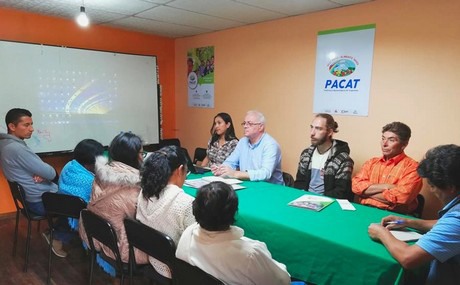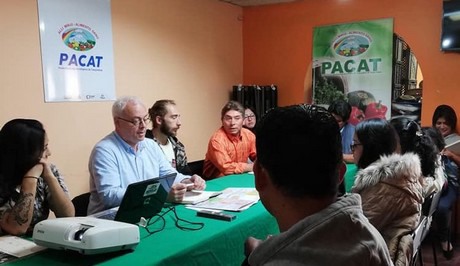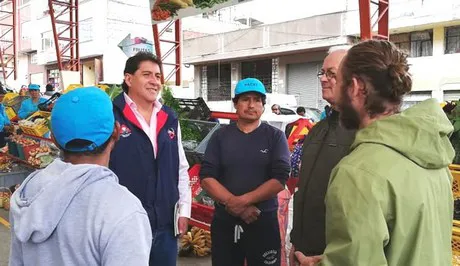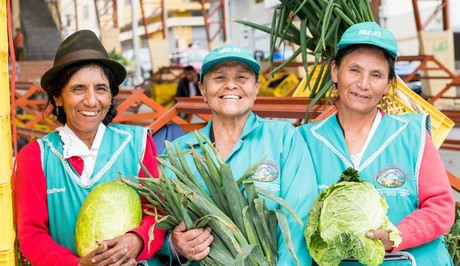Last week the Trias organization sent Guy Callebaut to Ecuador. Guy is the GlobalGAP chairperson and a Trias volunteer. He went to this South American country to advise the Pacat cooperative. Trias is an organization that gives family-run farms all over the world a chance to make simple dreams come true.
"I went to Ecuador in the context of the VBT's southern operation. Coupled with this is the Belgian auction houses' Responsibly Fresh engagement. These support Trias”, says Guy. “My assignment was to analyze how the Ecuadorians market organic products."
"We looked at how organic cultivation is certified, documented, and traced. And we assisted where necessary with regard to this. We also investigated how the Pacat cooperative works when it comes to management. Here again, we assisted when it was needed."

Certification
“The certified organic cultivation for export in Ecuador is mainly focused on bananas. With a total of $3 billion, Ecuador is the most important banana exporter in the world. There is significant interest and awareness of the importance of organic fruit and vegetables there", says Guy.
"However, this crop is especially important for the local market. As a result, no international organic certification has been introduced. This is due to the high cost involved", says Guy. “The national and provincial governments subsidize a local certification. However, for now, there is no overarching certification for organic products in place."

“I visited the Quinoa cooperative, Coprobich, who do have bio/fairtrade certification. They ship large volumes of prepackaged quinoa to the French and Dutch markets”, says Callebaut. The Pacat organization's growers are currently selling only 40% of their production as organically certified. These products' premium prices are realized by direct sales to consumers on the market. Ten percent goes to the hospitality industry. The rest is sold, with no extra margins, as a 'conventional' product to the wholesale market.
Inca culture
In Ecuador, organic farming is called 'Agricultura Limpia' or ‘clean agriculture.’ “Organic cultivation in Ecuador is very similar to European organic farming. They use no chemical pesticides or fertilizers. Ecological awareness is interwoven with the ancient Inca culture. This is why the lunar calendar is kept in mind when planting", he says.
"Plots are registered using GPS and sample checks are done to control mass balance. Residue analysis is limited to mainly visual and social control. Here, growers keep each other in check. However, soil analysis is important since it is young volcanic soil. It must, therefore, be checked for heavy metals”, continues Guy.

The US dollar
This Trias volunteer advised the cooperative about fruit and vegetable cultivation. "There are two noticeable matters. Firstly, farming is divided into three elevations of 1,500m up to more 3,000m. This promotes specialization and crop dispersion. Secondly, the fruit and vegetables are not sold by weight, but rather per Dollar. Ecuador has adopted the American dollar as its currency. Since they do not have change, the packaging is made in one dollar sizes. For example, three large or six small tomatoes are both sold for 1$.”

“Broccoli is a very significant export product for Ecuador. A large part of this is destined for the frozen foods market but is still cultivated traditionally. When the growers in Ecuador succeed in growing organic broccoli and have it certified as such, this country could place itself in a very important export position”, concludes Callebaut.
For more information:
Guy Callebaut
Trias
23 Wet Street
1040 Brussels
+32 (0) 25 13 75 34
www.trias.ngo/nl
